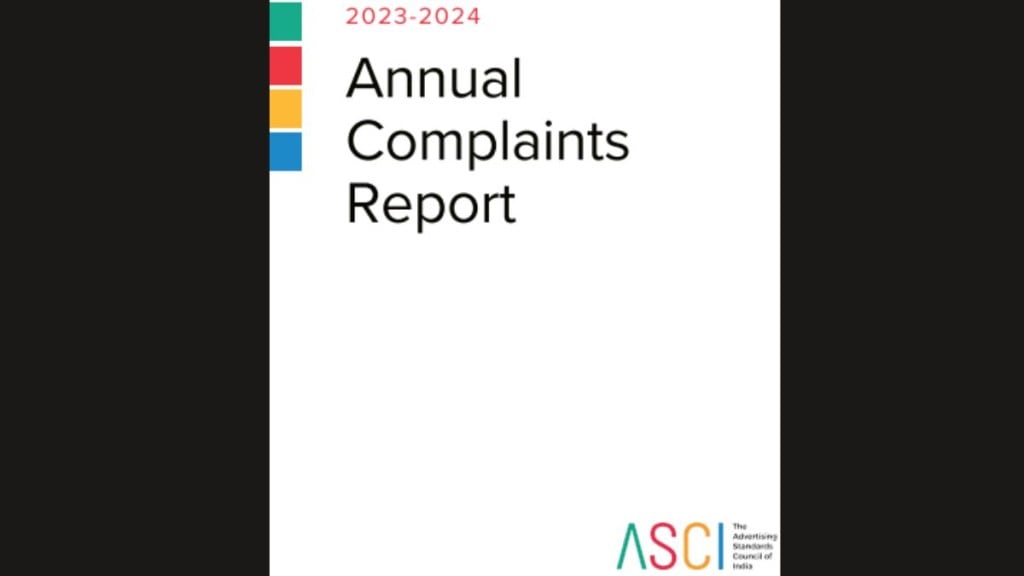The Advertising Standards Council of India (ASCI) has published its Annual Complaints Report, which offers an analysis of advertisements that were considered objectionable in the fiscal year 2023–24.
From what it’s understood, ASCI examined 10,093 complaints and investigated 8,299 advertisements. Reportedly, the majority of violations were on account of misleading claims at 81%, followed by ads that promoted harmful situations or products at 34%. Seemingly, digital ads accounted for 85% of ads processed, and had a lower compliance rate of 75%, compared to 97% for print and TV. Moreover, 94% of the ads that were processed were picked up suo moto by ASCI. 49% of the advertisements picked up by ASCI were not contested by the advertisers. A total of 98% of cases are understood to have required modification as they violated the ASCI Code.
It’s believed that this year, healthcare emerged as the most violative sector, contributing to 19% of cases, followed by illegal offshore betting (17%), personal care (13%), conventional education (12%), food and beverage (10%), and realty (7%). Baby care emerged as a new contender in the top violators category, with influencer promotions contributing to 81% of babycare cases. Out of the 1,575 advertisements processed in the healthcare sector, 1,249 are believed to have violated the Drugs and Magic Remedies Act, 1954, and were reported to the sector regulator. Based on the report’s data, 86% of the healthcare ads appeared on digital platforms. 1,311 advertisements for illegal betting were sent to the appropriate authorities for further action. Of the 1,064 ads that ASCI examined in personal care, 95% of them appeared online, with more than half (55%) being influencer non-disclosure cases.
Official data suggests that celebrities continued to appear in ads that were in violation of the ASCI code. ASCI processed complaints against 101 ads featuring celebrities, 91% of which required modification. Reportedly, 104 celebrities appearing in these 101 ads were found to be in violation of the celebrity guidelines as they could not provide any evidence of due diligence. The top five violative categories for celebrity violations were personal care (22%), food and beverages (21%), illegal/betting (20%), healthcare (9%), and durables (6%). Furthermore, ASCI reported 3,200 advertisements directly to regulators for violations of the law. Beside the 1,311 offshore illegal/betting ads escalating to the Ministry of Information & Broadcasting and the 1,249 healthcare ads being reported to the Ministry of AYUSH for potential violations of the Drugs and Magic Remedies Act, 1954, others included realty (493 ads), alcohol beverages (82 ads), and tobacco and tobacco based products (65 ads).
“I believe sectors, such as healthcare, emerging at the top are a concern for all citizens. With the highest number of violative ads seen online, advertisers and platforms must work with regulators and self-regulators to keep consumers protected. I think ASCI Academy’s, recently, launched e-learning courses on responsible advertising and responsible influencing is a step to increase the industry’s capacity to create ads with understanding of regulatory standards and ensure that consumers are not exposed to objectionable advertising in the first place,” Manisha Kapoor, CEO and secretary general, ASCI, said.

